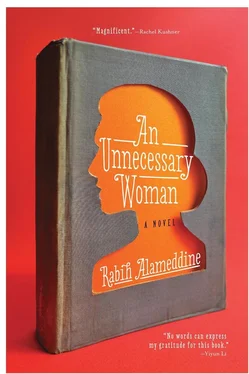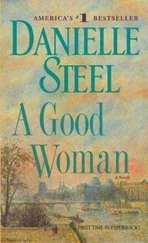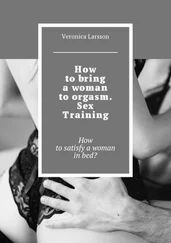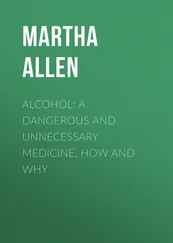What are we doing?
My mother’s feet barely reach the water. Her toes dive below the surface and curl, wishing to drown; the arch of her foot retracts, wanting no part of this forced baptism.
“This won’t work,” my great-niece says. “She’s too small. We have to move her forward.”
“No,” my mother says, quite succinctly, if you ask me. She is suddenly alert. “Go away.” If eyes are windows to the soul, then my mother has a pretty angry one right now. “Leave me be,” she tells my great-niece, her weak hand flicking in a dismissive, despotic gesture, “and tell your mother to find you a decent husband.”
“She’s busy,” my great-niece snaps. Her upper lip curls inward, almost disappears — not so attractive.
Her brother considers this the greatest of jokes. “I can find you a husband,” he says, “a big, fat, ugly one with no sense of humor.”
Without thinking, I glare over my shoulder. He looks suddenly a little guilt-ridden, less enamored of himself than when he walked in, a disheveled quail of a boy; his hands behind his back, he rocks hesitantly on his heels. His sister bores into him with a homicidal stare, but that doesn’t seem to be the cause of his concern. My mother holds him with her glittering eyes. Maybe she objects to the lack of humor in a husband.
“We can raise the basin,” the boy says, his singsongy voice alternating oddly between high and low notes. “That’ll solve the problem.”
We place the red tub of water on a stool, and I kneel on the floor, luckily carpeted by an old cheap Turcoman similar to its sisters on the walls.
My mother’s feet are broad, the toes stubby, the toenails corn yellow with kernels at the center, the ankles prominently veined but not swollen. Mottled discoloration runs the length of her legs, from the tips of her toes to the knees and probably higher. The pigments of her skin are no longer properly mixed.
She sighs as I guide her feet into the water.
The boy claims his sister’s old spot on the sofa and begins a dialogue with the laptop. He lights a cigarette and within seconds fades into an uneasy cumulus of smoke. My great-niece kneels beside me, asks if she can help. I admit that I don’t know what I’m doing. Wash her feet and trim her nails? She can take the right foot and I the left.
I lift my mother’s foot out of the water, all bones and no meat. With my hand I wash the foot slowly, build a milky lather before passing the bar of soap to my great-niece. Once tectonic plates, her calves are now emaciated, striated with boysenberry-purple veins. She used to have the strong legs of any of Javier Marías’s female characters. I knead the tendons and knots around her anklebone, massage her toes, run my fingers through the gorges between them. I feel the flow of her blood.
My great-niece mimics my every step. We arrive at a gentle rhythm, slow and anodyne, the rocking of an old porch swing on a summer afternoon.
My mother’s eyes are shut, her lips as well, and probably her ears. Calm spreads over every wrinkle of her face. She cares little that I’m the one who’s washing her feet. She cares even less about my bleating conscience. More than content, she seems happy. She’s no longer present in the room. I don’t know what to do with her, what to say. I continue with my menial task. She is lost to me once again.
“Maybe I’ll dye my hair blue,” my great-niece says.
Rain streaks the small window — lazy, untroubled rain, sure of itself, which tells me I should reconsider my plan to walk home.
The troubled sky reveals
The grief it feels.
O Longfellow, what will happen to me if I live long enough that I lose my ability to walk long distances? Will I still be able to wash my feet?
My mother’s foot balances on the side of the basin, but I feel its weight on my thighs, a tight knot in the back of my neck, a burden on my shoulders. Up her foot, down, across, the water remains warm; my fingers turn pruney, their folds and furrows more intricate than their counterparts on my mother’s.
A few ulcerations on the carpet hanging to my right catch my attention. I didn’t notice them at first. It seems that someone sewed the tears with a timid thread and then covered them with cheap paint. There is a portrait hanging on the fake Turcoman itself, an old picture of my uncle-father. Now I remember what he looks like. The cataract subsides, if momentarily.
He is younger, the way he was when I was a child. He wears a suit and a fez, trying without much success to appear respectable for eternity. An odd photo, his skin is a dovish hue, but I can’t tell whether the grays have deteriorated through the years or whether the photograph was developed in those unnatural tones. Tufts of black hair protrude from his nostrils to mix with his mustache. He has too long a chin and a cucumber nose. He and I have a similar protruding brow, which probably means he and his older brother looked alike. I can’t tell whether we have the same eyes because he’s squinting at the camera as if trying to read it. I remember that he needed glasses but never owned any, or visited an ophthalmologist for that matter. He lived and died squinting at the world.
How he managed as a tailor’s assistant is beyond me.
He looks displeased, as if something is irritating him. Maybe he knows that the photograph will make him look peculiar, maybe he believes his face is unattractive; he seems, I don’t know, discontent with the sum of his features. I remember him as irascible but not unreasonably so. He looks like someone who is ready to leave the party, forever disgruntled and wishing to return home.
I remember him now.
I flash to a memory of him holding my hand to cross the street. I must have been ten or eleven, old enough to be conscious of what he was thinking. There were cars, buses, trams, and mule carts on the street, hence the need for hand-holding. I held his right hand, my half brother the eldest his left, but all of a sudden he switched us around. I would be the first to encounter oncoming traffic.
Could I find fault with that? I was his stepchild — his brother’s daughter, his wife’s child, not his. I most certainly blamed him then.
On the other hand, I remember that he used to make my half brother the eldest kiss the leather strap he was going to use to whip him, but not me — my stepfather never punished me.
“I didn’t even know she had another daughter,” my great-niece says. “Grandfather hasn’t mentioned you either. He might have when I wasn’t around, but I don’t think so.”
I pare my mother’s toenails, we both do. We allow the clippings to drop into the water. I massage a thin layer of Vaseline onto her skin and cover her foot with a sock that catches on a small, sharp protrusion. I should have filed the toenails smoother.
I’m not that far from home. The rain has halted, but the lowering, evil-looking clouds threaten, their congealed masses pushing across the sky, their color mirroring that of my stepfather’s skin in the portrait. I will risk walking in the cold. I need to clear my head, dispel the ant farm once more.
Does one have to fulfill a promise made to an unconscious person? I told my mother that I’d return, but she couldn’t possibly have heard me. My great-niece was a witness, though.
Nancy? What an odd name. Who would have thought someone from this family would give a daughter a Western name?
Beirut changes its dazzling accessories more often than its society ladies do; she certainly has more color highlights. She sparkles. According to the time of year, the time of day, the weather, and numerous other variables, her streaks of light morph. The sparkle — real, not metaphorical — is a result of location, between iridescent Mediterranean and mountains. A headland breasting the sea, Beirut stands as a gaudy sentinel, Horatio and Marcellus bedecked in shiny baubles. Élisée Reclus once called Byblos voluptuousness deified, but that’s probably a more apt descriptor of my Beirut.
Читать дальше












